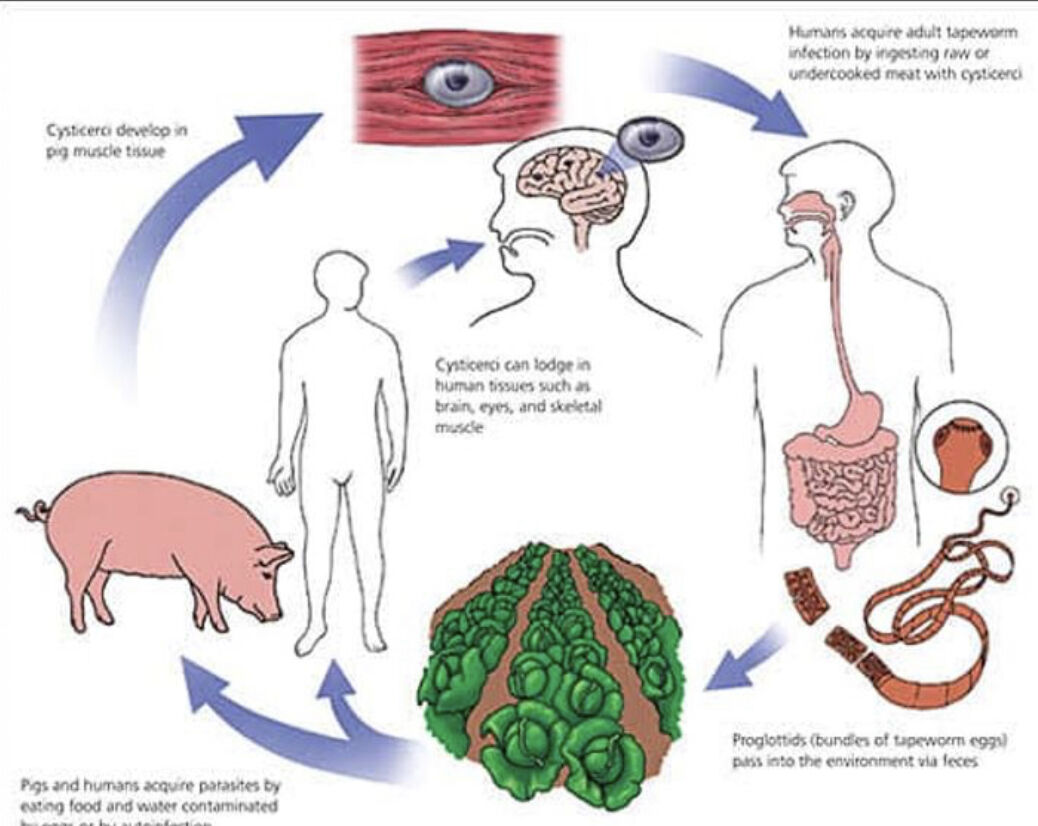Vegtable vexation goes viral: Brainy parasites prompt neurologist’s Facebook revelation

In a remarkable medical case, an individual who ate improperly washed raw vegetables was found to have contracted parasites that infected their brain. Surat Tanprawate, a neurologist, highlighted the shocking incident via his Facebook page Brain Knowledge with Dr Surat.
The post, which swiftly gained significant attention, was accompanied by an X-ray image of a brain speckled with calcium deposits – a sign of parasites.
The individual had been suffering from a consistent headache and visited Surat for consultation. The X-ray revealed these deposits were Taeenia Solium, a worm-like parasite, which had reached the brain from ingestion of contaminated raw vegetables. They developed into cysts and gradually spread, causing symptoms such as headache, seizures, faintness and memory loss. This case is an unsettling reminder of the direct link between our food and health conditions, and more chillingly, that consuming contaminated matter is akin to eating faeces.
Surat’s post received extensive engagement with many people showing concern. The doctor further explained that the life cycle of Taeenia Solium involves various stages and hosts. Humans are infected by eating undercooked pork containing cysts, excreted as eggs in human faeces, potentially contaminating vegetables grown using this faecal matter as fertiliser, reported Sanook.
Eating unwashed contaminated vegetables completes the cycle wherein the parasites form cysts in human brains, hardening around long-dead parasites to form calcium deposits.

Preventing infection involves close attention to food and personal hygiene along with certain cautionary practices, as outlined by the neurologist:
- Thoroughly cook animal products: Ensure all meat, particularly pork, beef and fish, is cooked completely at temperatures sufficient to kill Taeenia Solium larvae.
- Maintain proper hygiene: Adhere to good hygiene practices such as washing hands with soap and clean water before handling food, after using the toilet and after touching animals.
- Avoid raw or partially cooked fish: Refrain from consuming raw or undercooked fish, especially when sourced from freshwaters, as they may carry Taeenia Solium larvae.
- Store food adequately: Proper food storage can prevent contamination. Perishable items should be stored in a fridge and sealed tight to mitigate the risk of parasite spread.
- Drink clean water: Ensure your drinking water is safe and trusted to decrease the risk of parasitic infection.
- Routinely de-worm pets: Regular de-worming of pets, and adhering to good pet hygiene practices can minimise the likelihood of parasites spreading from animals to humans.
- Avoid touching contaminated soil: Exercise caution while contacting the soil, particularly in areas where infected animals might have excreted.
- Stay informed: Understand the risks and symptoms associated with Taeenia Solium infection to seek medical attention timely if needed.
- Regular health check-ups: Regular health screening can enable early identification and appropriate management of any potential Taeenia Solium infection.
- Take precautions while travelling: If visiting regions with a high incidence of Taeenia Solium infection, take additional preventive measures e.g. to avoid consuming raw or undercooked food and only drink bottled or purified water.
Following these preventive measures, as Surat pointed out, can greatly reduce the risk of Taeenia Solium infection and cystic formation. Additionally, de-worming every six months also helps lower the risk.
Latest Thailand News
Follow The Thaiger on Google News:


























